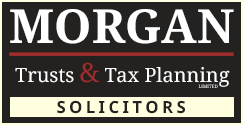
SRA Price Transparency Rules
From 6th December 2018 the Solicitors Regulation Authority (SRA) have made it compulsory for all SRA regulated law firms to publish price and service information in connection with the following areas of work:
- Residential Conveyancing
- Non-Contentious Probate
- Motoring Offences which are ‘summary only’ offences
- Immigration work (excluding asylum work)
- Employment Tribunal Work
- Debt Recovery up to £100,000
- Licensing application work for businesses
The only work on the above list that this firm undertakes is Non-Contentious Probate work. We set out below, in compliance with the new regulations, information in relation to how we undertake Non-Contentious Probate work.
How we charge for Probate work
The first point to make is that the phrase ‘probate work’ covers an enormous variety of types of legal tasks we might undertake for a client. The amount of work we do will depend on the following factors:
- Complexity of the estate in terms of number and type of assets, number and type of beneficiaries and whether the estate is a taxable estate or not
- How much work the clients themselves wish to undertake and how much they wish us to undertake
- Other initially unknowable at the outset factors such as HMRC’s actions or claims by creditors of the deceased
- Any other unusual considerations that may be applicable in a particular case
How we cope with this ‘how long is a piece of string’ type scenario is as follows:
- If all a client requires us to do in a straightforward estate is complete the IHT205 form and the Grant application from information they give us we charge a set fee of £350 plus VAT plus the Court fee (currently £273 plus £1.50p per copy Grant).
- We only charge by either hourly rates or a fixed fee. We never charge a percentage of the estate as we regard this as old fashioned and potentially unfair to clients in a large but fairly straightforward estate. As hourly charging can also reward inefficient working, we would normally look to agree a fixed fee for either the whole job or the various phases of the job (if a degree of uncertainty remains after the initial scoping work) once it is clear from initial investigations how much work will be involved.
- We agree and record at the outset what work we will be doing for the Estate and what work the personal representatives (or sometimes the beneficiaries) will be doing themselves.
- We pride ourselves on our regular updating of clients on progress on their matter and we would always seek to immediately alert a client to previously unforeseen complications arising which might alter the cost of a matter.
- In certain scenarios where predicting the turn of events is impossible (eg, if HMRC launch an investigation) then we always give the clients the option of setting a cap on fees above which we will not go without further authority.
- We always try to delegate down the more procedural aspects of the work to lawyers with lower charge rates.
- We make clear what work falls outside the scope of our retainer: in probate work this usually means transferring property, litigation connected to the Estate and on-going tax planning for recipients of money from the Estate.
- We do not charge an extra fee if any lawyer here is an executor.
- We interim bill, usually monthly and occasionally quarterly, so at all times a client is aware of the fees being incurred.
Hourly rates
This firms specialises in a limited field of work, namely probate, Wills, capital taxation advice, advice re Trusts and the administration of Trusts, elderly care, Power of Attorney and Court of Protection work and advice to the wealthy about estate or other wealth management (but not including regulated financial advice).
The 4 lawyers in the firm all do some of this work. Their charge rates from time to time will vary per our Terms of Business but at present they are:
James Morgan – Solicitor – £275 per hour plus VAT
Christina Attridge – Legal Executive – £200 per hour plus VAT
Laura Howard – Legal Executive – £200 per hour plus VAT
Lucy Dickerson – Para Legal – £180 per hour plus VAT
Timescales
It is almost impossible to say how long a probate case will last as again it depends on so many variables. What we can say is that we seek to obtain a representative Grant (ie, Probate if there is a Will and Administration if there is no Will) as fast as is possible within the bounds of also doing diligent information gathering in order to satisfy HMRC’s disclosure requirements. Factors that often delay obtaining a Grant include overseas assets, problematic assets to value (eg, houses with title or structural defects), hard assets to value (eg, private company shares) or a disorganised deceased whose assets are hard to identify. If there are hold ups in the probate process we will always seek to explain them and how long the delay may continue for.
Disbursements
By far the most common disbursement we may incur on an Estate’s behalf is the Court Probate fee. This is a non-VAT-able item. It is presently £155 plus £1.50p per copy Grant if a solicitor makes the application (higher if they do not).
The Court has now phased out Oaths so there is no longer an Oath Swearing Fee disbursement.
Other disbursements that may be incurred in a probate are fees for Bankruptcy Searches against beneficiaries, Land Registry Searches, Counsel (if a barrister is needed), Travel Expenses (45p a mile), S.27 Trustee Act Notices to find/protect against a deceased person’s creditors, Property, Share and Chattel Valuations, Share Registrars and Genealogists to trace missing heirs. We will always let you know the likely cost of such disbursements before they are incurred and whether that cost is liable to VAT on top.
